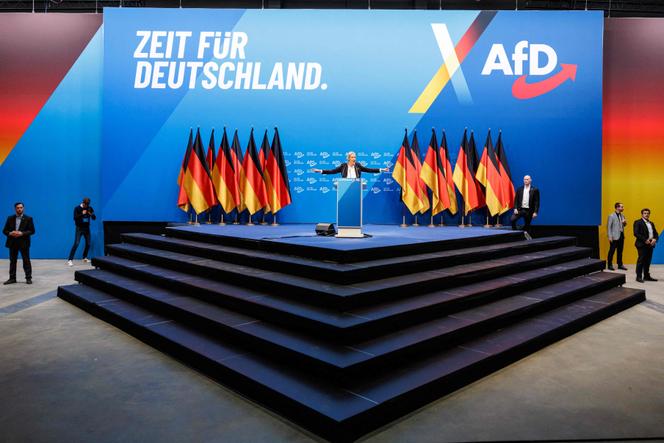


Germany's far-right AfD went on the offensive on Monday, May 5, against its designation as a "right-wing extremist" party by the domestic intelligence agency, as the move further inflamed ties with US President Donald Trump's administration. A spokesman for the Alternative for Germany (AfD) told Agence France-Presse the party had lodged a court challenge against the BfV intelligence agency's designation on Monday, the day before incoming conservative chancellor Friedrich Merz is due to take office.
The BfV agency said on Friday it considered the AfD a "confirmed" right-wing extremist group, citing the "xenophobic, anti-minority, Islamophobic and anti-Muslim statements made by leading party officials." The classification will help authorities seek greater powers to monitor the party with phone taps and undercover agents, and has fueled fresh calls for an outright ban on the AfD.
Members of Trump's administration were quick to leap to the AfD's defense in the wake of the BfV's decision. US Vice President JD Vance described the AfD – which like Trump has campaigned against immigration – as "the most popular party in Germany." US Secretary of State Marco Rubio called the intelligence agency's move "tyranny in disguise" and said "Germany should reverse course."
The German foreign ministry took the unusual step of replying directly to Rubio on X to say: "This is democracy." It stressed the BfV's move was "the result of a thorough and independent investigation to protect our constitution." A ministry spokesman reiterated on Monday that Germany "strongly rejects" Rubio's comments and that his "insinuations are certainly unfounded."
The BfV based its decision on a report prepared over years which has been provided to the interior ministry. The timing of its decision, in the final days of the outgoing center-left government, sparked claims from the AfD that the move was designed to stymie their growing electoral success.
The AfD came second in Germany's federal election in February with just under 21%, behind Merz's conservative CDU-CSU alliance which won nearly 29%. It has since been neck-and-neck with the CDU/CSU in opinion polls, even taking the lead in some of them.
In a statement issued on Sunday ahead of announcing its appeal, the AfD called the BfV's move "illegal" and said that the agency had "no evidence" for claims that the party was a threat to Germany's constitution. It also rejected the accusation that it was xenophobic or Islamophobic.
The BfV's designation has renewed calls from some politicians – including in Merz's CDU/CSU – for the AfD to be banned, although the threshold for such an action would be high. The party has frequently triggered uproar in Germany. One of its most prominent faces, the party's leader in Thuringia state, Bjoern Hoecke, has twice been convicted for using a banned Nazi slogan and others have been criticized for downplaying Nazi atrocities.
Hoecke caused outrage over the weekend with a reported tweet – later deleted – in which he urged BfV employees to "find new jobs." "History shows: 'People have to face the consequences of their actions'," he said, in what was seen as a threat against the agency.
